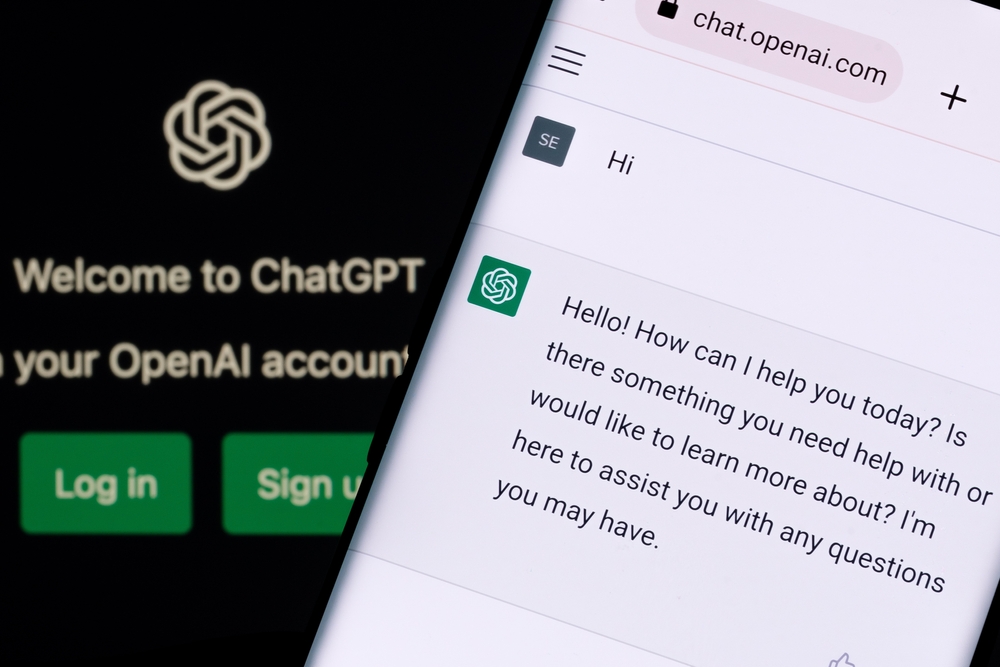ChatGPT and other AI tools have become everyday companions for millions of people looking to write faster, learn quicker, or just get things done more easily. With over 800 million weekly users worldwide—twice as many as just four months ago—it’s clear this technology is becoming deeply embedded in how we think and work. But a new brain scan study from the MIT Media Lab raises a sharp question: what is all this convenience doing to our brains? For the first time, researchers have real neurological data showing that regular use of ChatGPT may significantly reduce activity in key brain areas involved in critical thinking, memory, and motivation. The results weren’t subtle—and they challenge the idea that AI tools are simply neutral helpers. If you’re using ChatGPT to make things easier, it’s worth asking: at what cost?

What the First Brain Scan Study of ChatGPT Users Actually Found
Researchers at the MIT Media Lab have conducted the first brain scan study to evaluate how using ChatGPT affects human brain function, and the results are raising serious concerns. Led by neurotechnology specialist Dr. Nataliya Kosmyna, the study involved 54 volunteers between the ages of 18 and 39 from MIT, Harvard, and Wellesley College. Participants completed writing tasks while wearing neuroimaging headsets capable of measuring information flow between brain regions using Dynamic Direct Transfer Function (dDTF), a more advanced method than standard EEGs. The volunteers were asked to write essays either with or without ChatGPT and later recall the content of their writing. The researchers found a consistent pattern: participants who used ChatGPT exhibited significantly reduced activity in the prefrontal cortex, the part of the brain responsible for decision-making, working memory, and higher-order thinking.
This reduction in neural engagement wasn’t minor—it was evident across nearly all users and persisted even when the tasks were repeated. In contrast, those who wrote independently without ChatGPT showed greater brain activity in the same cognitive regions, particularly when recalling what they had written. This suggests that the mental effort involved in creating original content helps reinforce memory and critical thinking pathways, whereas relying on AI tools appears to suppress that effort. The technology may be making the task easier, but it’s doing so by sidelining the very brain functions most essential to learning and cognition.
Four months later, a subgroup of 18 participants returned for a second round and switched roles. Those who had previously used ChatGPT were now asked to write without it, and vice versa. The changes in brain activity followed the same trend: prior ChatGPT users continued to show lower cognitive engagement even after switching to manual writing tasks. This suggests a possible lingering effect or learned cognitive passivity—a kind of mental conditioning where the brain no longer expects to do the heavy lifting. While the study is small in scale, its implications are clear: frequent use of generative AI like ChatGPT may come at a cost to cognitive independence.
What Reduced Brain Activity Actually Means—and Why It Matters
Reduced brain activity, especially in the prefrontal cortex, isn’t just a technical observation—it has real-world consequences. The prefrontal cortex plays a central role in executive functions like planning, focus, impulse control, and working memory. When this area is underactive, people tend to rely more on shortcuts, struggle with decision-making, and retain less information. In the context of this study, using ChatGPT appeared to bypass the usual mental processes involved in problem-solving and creative output, essentially dulling the brain’s natural engagement during complex tasks.
The researchers emphasized that this isn’t about ChatGPT being harmful in itself, but about how it’s being used. When users turn to it as a default tool for thinking, writing, or even brainstorming, they may unintentionally stop exercising the mental muscles required to do those things independently. That’s similar to what’s been observed in studies of GPS reliance—frequent use of navigation systems can weaken spatial memory and orientation skills. In both cases, the tool solves a problem, but at the expense of the user’s own cognitive effort.
It’s worth noting that ease and efficiency are exactly what make generative AI appealing. But that convenience can mask the fact that repeated use may train the brain to disengage. Over time, this could create a feedback loop: less effort leads to less activation, which in turn makes it harder to re-engage those same mental functions when AI isn’t available. This doesn’t just affect academic or workplace performance—it could influence how people approach challenges, analyze information, or reflect on their own thoughts.
What’s especially concerning is that this kind of mental downregulation doesn’t always feel noticeable in the moment. The brain isn’t sending warning signals; it’s simply not working as hard. That makes it easy to mistake ease of use for efficiency or productivity, when in fact, the cognitive cost is being quietly offloaded.

Not Just Memory—How ChatGPT Use May Be Shaping Attention and Motivation
Beyond memory and problem-solving, the MIT study also highlighted potential effects on attention span and intrinsic motivation. Participants who used ChatGPT during writing tasks not only showed reduced activity in the prefrontal cortex but also in regions tied to sustained attention and goal-directed behavior. These include areas of the parietal cortex and midline structures linked to focus and self-regulation. In simple terms, using AI to complete tasks may make people less mentally invested in the work itself—an effect that goes beyond just producing weaker recall.
This matters because attention isn’t just about staying on task—it’s closely tied to how deeply we process information. When the brain isn’t fully engaged, it’s less likely to encode details into long-term memory or create meaningful connections between ideas. Over time, this can affect how people learn, how they think critically, and how they retain information. The MIT team noted that participants who used ChatGPT were less able to accurately describe their earlier writing, even just a few days later, compared to those who had written without AI support. That suggests a shallow level of engagement, where the task was completed but not cognitively internalized.
Another dimension the researchers observed was a drop in intrinsic motivation. When people used ChatGPT to assist in writing, their sense of ownership and interest in the task declined. While the tool made the process faster and easier, users were less emotionally connected to the content they produced. That disconnect could be important in educational and professional settings, where motivation and active participation are key to long-term success. In other words, when the work doesn’t feel like your own, you care less about doing it well—or remembering it at all.
The researchers stopped short of saying AI use causes cognitive decline, but the early signs of disengagement raise valid concerns about how these tools are integrated into daily habits. Convenience isn’t neutral; it changes the way we approach mental effort. And when that shift involves critical skills like attention and self-motivation, the long-term trade-offs could be significant, especially for younger users whose cognitive habits are still forming.

How to Use AI Without Letting It Undermine Your Brain
Using ChatGPT or similar tools doesn’t have to mean surrendering cognitive effort—but it requires conscious strategy. The key is to shift from passive to active use. Instead of letting the AI do the thinking for you, treat it like a collaborator that supports—not replaces—your reasoning. For example, use ChatGPT to brainstorm initial ideas, but write the first draft yourself. Or use it to refine wording or clarify structure only after you’ve engaged deeply with the content. This keeps your brain in the driver’s seat and helps preserve critical thinking, memory, and attention skills.
Another approach is to limit when and how often you rely on AI tools, especially for tasks that require original thought, reflection, or learning. If you’re studying or working on something important, try completing it unaided first. Then, if needed, compare your work to AI suggestions and evaluate the differences critically. This not only sharpens your analytical skills but reinforces memory and deeper engagement. Think of AI as a second set of eyes, not a substitute brain.
It also helps to stay aware of the temptation to offload effort. When a tool makes something faster or easier, ask yourself what you’re giving up in exchange. If you’re regularly turning to AI to summarize, explain, or even decide for you, you may be weakening the exact mental skills those tasks are designed to build. Just as calculators didn’t eliminate the need for basic math, generative AI shouldn’t eliminate your ability to write, reflect, or synthesize ideas on your own.
Finally, build in habits that support mental engagement. Take notes by hand when reading or researching. Review what you’ve written without AI to see what you remember and where your gaps are. Talk through ideas with peers instead of outsourcing to a chatbot. These are small shifts, but they can help keep your cognitive systems active and resilient—even in a world where AI is everywhere.

The Bottom Line—Convenience Shouldn’t Cost Cognitive Control
The MIT study sends a clear message: while generative AI tools like ChatGPT offer impressive convenience, they may come with cognitive trade-offs that deserve serious attention. The consistent reduction in brain activity observed among users—especially in areas linked to memory, attention, and decision-making—isn’t a trivial side effect. It signals a deeper shift in how we process information and engage with complex tasks. The problem isn’t that ChatGPT is inherently harmful, but that frequent, passive use can weaken the very skills it appears to support. When users let AI handle tasks that would normally challenge the brain—like writing, summarizing, or synthesizing ideas—they miss out on the mental engagement required to strengthen those skills over time. That disengagement isn’t immediately obvious, but it accumulates.
Generative AI differs from earlier tools like spell check or search engines because it can perform the thinking itself—not just support it. That raises the stakes. When you type in a prompt and get a polished response in seconds, it’s easy to accept the output without reflecting on your own reasoning. Over time, this can train your brain to expect easy answers and avoid mental friction—the very process that builds cognitive endurance. In education, this has implications for how students learn and retain knowledge. In the workplace, it can affect how professionals approach problem-solving and decision-making. And for the average person, it could mean gradually losing the ability to engage deeply with information, especially if AI becomes the default tool for everyday thinking.
This doesn’t mean we should avoid using ChatGPT altogether. The issue is how it’s used and how often. If it becomes a substitute for independent thought, writing, or learning, it may undermine cognitive development and mental resilience. But when used strategically—such as for editing, idea generation, or checking your own work—it can serve as a valuable tool that supports, rather than replaces, brain function. The difference lies in whether you’re still thinking critically or just following the AI’s lead.
Ultimately, the takeaway is straightforward: don’t confuse mental ease with effectiveness. If something feels easier, ask what part of your brain is no longer involved—and whether that’s a trade you want to make. These early findings are a reminder that cognitive effort is not a flaw to be eliminated, but a necessary part of learning, problem-solving, and long-term brain health. In a world where offloading thinking is one click away, choosing to stay mentally active is more important than ever.










Leave a Reply